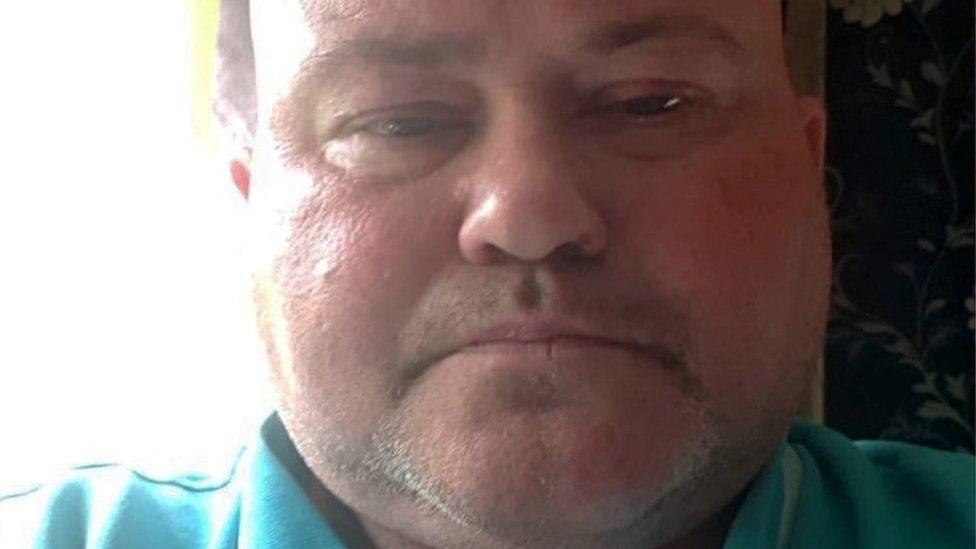
The body of a captured British man who died in detention has been returned by Russia with signs of "possible unspeakable torture," Ukraine says.
Paul Urey, aged 45, is reported to have died in detention in July after being captured by pro-Russian separatists.
He was being held captive in the self-proclaimed Donetsk People's Republic (DPR) breakaway region of Ukraine.
The UK has previously described Mr Urey as an aid worker and said Russia must face responsibility for his death.
Ukraine's foreign minister Dmytro Kuleba said "Russians" had now returned his body with "signs of possible unspeakable torture," giving no further details.
He went on to condemn the detention and torture of civilians as a war crime, vowing to "identify perpetrators of this crime and hold them to account".
Mr Urey, from Warrington, Cheshire, was detained at a checkpoint near the south-eastern city of Zaporizhzhia in April and accused of being a mercenary.
Speaking to the BBC after the reports of his death, Mr Urey's mother said she had been "so upset" when she heard of her son's plans to go to Ukraine.
"Part of me thinks maybe he just, because of how ill he was, maybe he wanted to go and die there doing something," she said.
Mr Urey had type 1 diabetes and needed insulin.
If proven, evidence of torture could potentially contradict earlier claims by Russian-backed officials that Mr Urey died in captivity on 10 July as a result of underlying health conditions and "stress."
"He died of acute coronary insufficiency aggravated by pulmonary and brain edema," Russian state news agency Tass quoted one official, Natalya Nikonorova, as saying at the time.
He was also in a "depressed psychological state due to indifference to his fate in his homeland", another official claimed.
In July the UK Foreign Office summoned the Russian ambassador over reports of Mr Urey's death in detention, for which it said Russia must bear full responsibility.
Liz Truss, who was then foreign secretary and is now prime minister, said he had been captured while undertaking humanitarian work.
"He was in Ukraine to try and help the Ukrainian people in the face of the unprovoked Russian invasion," she said.
-
- 15 July
Related Topics
from Via PakapNews